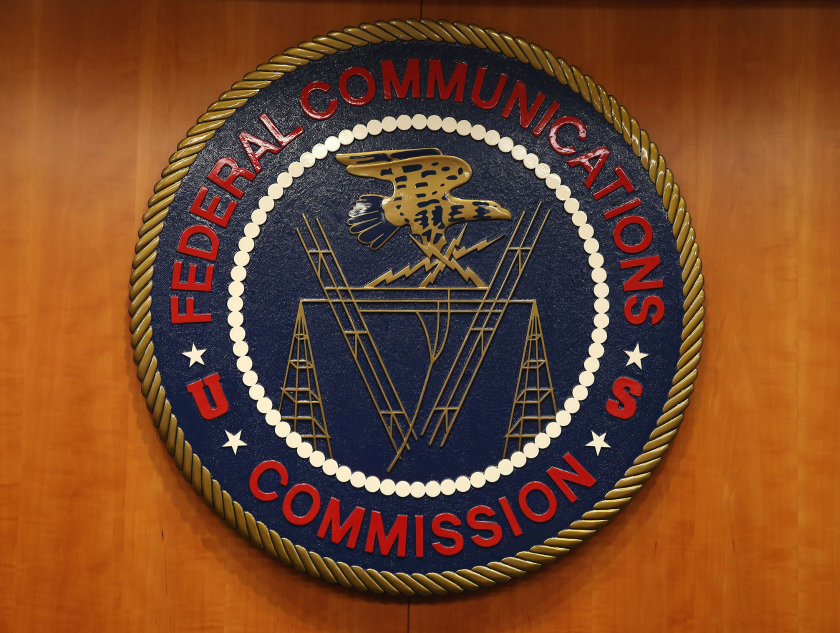The Federal Communications Commission has opened a brief comment period for the emergency broadband benefit authorized by the appropriations and COVID aid omnibus legislation passed in late 2020. The benefit is the first of its kind and its success or failure could influence policymaking on future dedicated broadband benefit programs for consumers as federal interest in digital equity expands.
The Emergency Broadband Connectivity Fund includes $3.2 billion for the one-time program, which directs the FCC to use the money for a $50 monthly discount for internet service to qualifying low-income households, as well as a one-time discount of up to $100 for a device to access internet service, such as a laptop, desktop, or tablet. Like the Lifeline program, these subsidies will be directed as a reimbursement to providers of internet service, not consumers.
Qualifying households include any household with at least one member that 1) meets the requirements for participation in the Lifeline program, 2) has been approved for free or reduced-price lunch or school breakfast programs, 3) has experienced a substantial loss of income since February 29, 2020, 4) has received a Pell Grant in the current award year, or 5) meets the criteria for the broadband provider’s existing low-income or COVID-19 subsidy program, as approved by the FCC. Households may receive both a broadband benefit and a Lifeline benefit, and past or existing bad debt with a broadband provider does not disqualify them from participation.
The FCC asks a series of questions for comment regarding its management of the program, under several broad categories, including the eligibility standards for participating providers and participating households, determining appropriate covered devices, reimbursement processes, and promoting awareness and participation in the program for eligible households. Communities should strongly consider submitting at least brief comments on the following questions raised by the FCC, particularly if they operate a broadband utility, currently engage in digital inclusion work in the community or plan to soon or have partnered with school systems throughout the pandemic to ensure access to connectivity for students.
The FCC will accept comments in its Electronic Comment Filing System through January 25, and reply comments through February 16, in WC Docket No. 20-445. Here is how to file a comment:
- Draft a letter from your mayor, city council, city manager, or other official including your input on the program. A template for this comment letter can be downloaded here and used on your city’s letterhead. A 1-2 page letter that summarizes your city’s input is sufficient.
- Visit the FCC ECFS page and click on “Submit a Filing.”
- Complete the required fields for your city’s name and address marked with an asterisk (*). For “Proceeding,” type in “20-445” and select the “Emergency Broadband Benefit Program” proceeding.
- Upload your comment letter.
- Submit your comment, and consider sending a copy to NLC at panettieri@nlc.org.
Template Comment Letter: FCC Emergency Broadband Benefit
(City Letterhead)
(Date)
SUBMITTED VIA ECFS
Marlene H. Dortch, Secretary
Federal Communications Commission
45 L St. NE
Washington, DC 20554
Re: Emergency Broadband Benefit Program Docket No. 20-445
Dear Ms. Dortch:
(Paragraph 1: Provide a brief introduction to your community and how your residents will benefit from the emergency broadband program, or why it is important to your community.)
(Paragraph 2: If your community has a municipal broadband utility, consider answering questions from the “Participating Providers” portion of the public notice, including what documentation your utility could reasonably provide if needed to elect to participate in the program and document service rates as of December 1, 2020 and how the FCC can balance its requirement to expedite the process with its efforts to combat waste, fraud and abuse.
If your community has worked with ISPs to offer access to households at a discount already, discuss this offering and how to ensure those residents are eligible to participate in the Emergency Broadband Benefit program. Additionally, if your community has or is considering a bulk purchase agreement to get service for vulnerable residents, share that in your comment letter and urge the FCC to ensure that communities are able to access these discount programs on behalf of residents and that communities entering these partnerships are not disadvantaged.)
(Paragraph 3: The FCC has asked how to handle verifying household eligibility, including whether there should be a limitation on the number of benefits per address regardless of the number of households at the address. The FCC has also asked about determining eligibility through school lunch programs, particularly in schools participating in the USDA Community Eligibility Provision. You may wish to seek input from partner school districts about this topic.)
(Paragraph 4: The FCC has asked about the minimum requirements needed for covered devices eligible for discount through the program. What is the minimum requirement needed for your students and residents to participate in school or other activities? For example, covered devices may need built-in webcams and microphones, and your local school district may have system requirements for required educational software.)
(Paragraph 5: The FCC has asked about promoting the program and raising awareness. Urge the Commission to require participating providers to publicize the availability of the benefit in their service areas and encourage providers and the FCC to work directly with local governments to ensure the benefit reaches as many eligible households as possible. If your community has successfully worked to raise awareness about and enrollment in existing similar discount programs, describe that activity here, and how the FCC can support those efforts.)
Sincerely,
(Official Name)
(City)
###
The National League of Cities (NLC) is the voice of America’s cities, towns and villages, representing more than 200 million people across the country. NLC works to strengthen local leadership, influence federal policy and drive innovative solutions. Stay connected with NLC on Facebook, Twitter, LinkedIn and Instagram.
